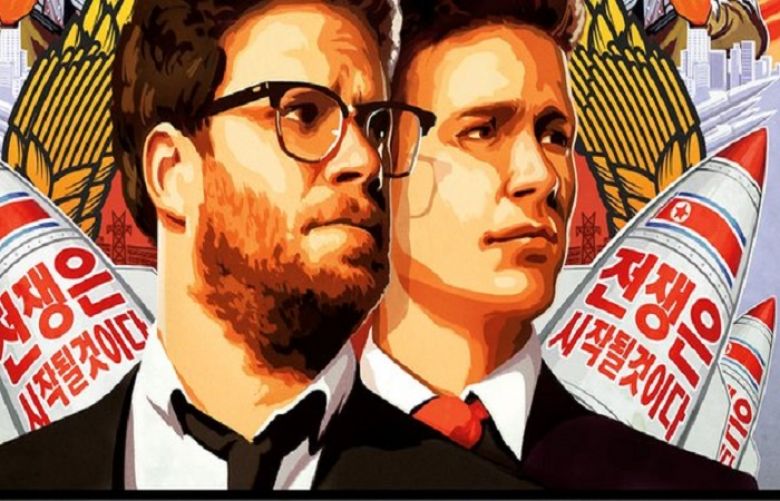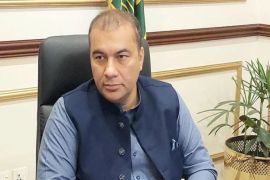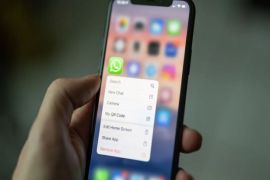In November, the headquarters of US entertainment giant Sony Pictures suffered a devastating digital attack.
One month on, and the consequences of the hack are still being experienced, with damage caused to the film world and major Hollywood celebrities alike.
Leaked documents have laid bare confidential and personal information of both famous faces and Sony employees.
Here, we examine the complicated catalogue of events, and the implications it could have for major players in the entertainment industry - including consumers.
How did it start?
On November 22, there were signs that Sony's computer system had been compromised when skulls appeared on employees' screens with a message threatening to expose "secrets" from data obtained in a sophisticated hack.
This initially caused crippling computer problems for workers at Sony, who were forced to work with old-fashioned pen and paper to complete their business. "We even fired up our fax machine," one employee told the LA Times
Sony initially said they were dealing with an "IT matter", but later acknowledged the hack to staff, calling it a "brazen attack" comprised of "malicious criminal acts".
Who is responsible?
A unknown group calling itself #GOP - later identified as Guardians of Peace - claimed it was behind the cyber attack, while the FBI launched an investigation into the case. Their name has been attached to subsequent leaks of information.
Speculation has mounted that North Korea may have had a hand in the attack, in response to Sony's forthcoming release The Interview, a comic movie involving a plot to assassinate North Korean leader Kim Jong-Un.
A North Korean foreign ministry spokesman called the movie an "act of terrorism" in June, promising "merciless" retaliation if it was released.
The country eventually denied involvement, but heaped praise on the hack, calling it a "righteous deed". The secretive nation's ability to wage cyber warfare is not unknown, but they have never used the name Guardians of Peace which, for the moment, remains mysterious.
News network Bloomberg has reported that the perpetrators worked from a hotel in Thailand - while unnamed Sony executives told TMZ the hackers were helped by insiders, who knew where the most embarrassing information could be found.
Aside from reams of data considered confidential by Sony, some of the company's prime assets have been stolen in the hack.
An early version of a script for the next James Bond movie, Spectre, was leaked but failed to halt production.
Five of Sony's films, including the new and unreleased version of Annie, turned up on illegal file-sharing sites and were downloaded up to one million times. Brad Pitt's Fury, which had already hit cinema screens, was also illegally shared.
What has been revealed?
A whole host of Sony's private company information has apparently been exposed to the public, including bosses' salaries and employees' social security information.
Strings of confidential emails between Sony workers have also been circulated and proved to be the most sensitive and embarrassing leaks.
The emails revealed that:
- Female film stars including Amy Adams and Jennifer Lawrence were paid less than their male co-stars
- Sony executive Amy Pascal made jokes about black-themed movies that might be among President Obama's favourites
- Angelina Jolie was branded a "minimally talented spoiled brat" in a private email from producer Scott Rudin
- George Clooney lost sleep over bad reviews for The Monuments Men and emailed Pascal to say: "I've let you all down. Not my intention. I apologize. I've just lost touch… Who knew?"
- Sony has contacted some media outlets asking them to exercise caution over the leaked material they report on. The latest release of stolen Sony data came on 16 December.
How has Hollywood responded?
A-listers at the heart of the revelations have maintained a dignified silence.
But screenwriter and producer Aaron Sorkin wrote in the New York Times of his anger at the hack, accusing the media of aiding and abetting the cybercriminals by sifting through the leaked information and reporting the most salacious findings. He hit out at Hollywood for doing little to protect the dignity of Sony employees, whose personal data has been stolen.
James Franco and Seth Rogen, stars of The Interview, have also commented publicly on the hack, using colourful language on US "shock jock" Howard Stern's show to called it "stolen information", adding that its circulation is "doing exactly what these criminals want".
Variety co-editor in chief Andrew Wallenstein has added his voice to the implications of reporting the leaked information, saying: "The hackers are playing the press as pawns."
Is the business of Hollywood under threat?
Several companies filming with Sony suspended their shoots because ongoing computer problems meant payments were not being processed, The Times reported. The company swiftly denied the claims, saying no productions had suffered.
However, the New York premiere of The Interview has been cancelled after a series of malicious threats from the hackers, claiming they would attack cinemas showing the Sony film. They alluded to 9/11 in their message and said it was a response to the "greed of Sony Pictures".
Its stars Franco and Rogen have also pulled out of media appearances associated with the film, while Sony are permitting US cinema chains to pull the movie, which is due for release on Christmas Day, if they wish.
Whether the threats will prevent cinema-goers from seeing the film remains to be seen at the moment.







